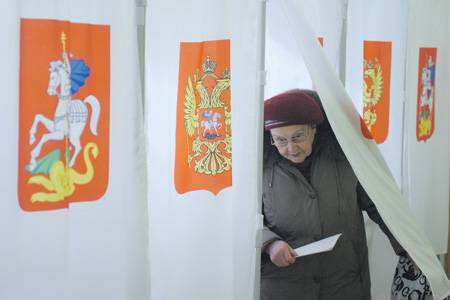All power in Moscow - advice!

September 10 2017 in Moscow held elections of councils of deputies. A preliminary vote by United Russia that was held on 18 in May was a breeze that many active Muscovites were waiting for, but nothing unexpected happened.
Four days earlier, on May 15, almost all political consultants left Moscow with their teams. We went to the regions - to make gubernatorial campaigns. From the point of view of business, municipal elections are of no interest: almost all the candidates do it themselves, they do not have large budgets, they do not plan to unite.
In the summer there was the impression that only United Russia was leading the campaign in Moscow. Everything looked natural and correct. Only political consultants were embarrassed - they were not Moscow, but regional. Perhaps this was done to exclude affiliation with local elites and information leaks, or maybe because such specialists need to pay much less.
The real oppositionists joined the elections 14 days before the start of the vote, which was expected. And their tactics worked. According to the results of the 10.09.2017 elections, Xnumx “played” mandates from 1475 were taken by the Yabloko candidates who were passing the “Gudkov project”, 178 self-nominated candidates, most of whom are also affiliated with Dmitry Gudkov, the Communist 107 and even the 44 candidate from Parnassus will become district deputies.
Candidates from traditional parties: LDPR and Fair Russia took an unexpectedly bad run in the elections. The Liberal Democratic Party supported its candidates (5000 rubles to the electoral account and an unlimited number of the city's LDPR newspaper, which almost no one took because it is not interesting even to candidates from the Liberal Democratic Party). They, by the way, 949 people were nominated to the whole of Moscow, of whom only 5 really became the deputies. “Fair Russia” worked in inverse relationship: the candidates were nominated by half as many (519 people), and the elections won twice as much as the Liberal Democratic Party: the 10 candidates.
United Russia’s runway candidates expectedly took most of the mandates in Moscow — the 1151 mandate. So, 78% of municipal deputies in Moscow will be United Russia. This is victory! The winning percentage is even higher than in the elections to the State Duma in 2016. However, the party members are upset: they expected a "total" victory.
But Moscow has split: half of the municipalities caught fire with opposition sentiments and decided to take power and delegate it to the councils of deputies. Indeed, Lenin's ideas became relevant again 100 years later.
Among Moscow political technologists, a new term has even appeared - the “red belt”. This is the line that will turn out if we draw it in all the districts where the opposition leaders took the majority in the councils. It stretches from the South-West - Zyuzino, Gagarinsky, Lomonosovsky, Akademichesky, passes through the Central Administrative District - Khamovniki, Tverskaya, then to the North - Airport, Falcon; NEAD - Ostankino, again Central Administrative District - Krasnoselsky. It was supposed to end in Izmailovo, where 9 from 12 mandates were taken by the opposition. But the Eastern District played by its own rules and fenced from the center of Moscow by “strong” areas, Sokolniki and Sokolnaya Hill (United Russia 12 on 12 mandates) and Perovo - United Russia 14 on mandates.
Looking at the map, we can say that Moscow is divided. The eastern territories defended their power, and the South-Western Administrative Okrug, Central Administrative Okrug, and CAO gave power.
Information